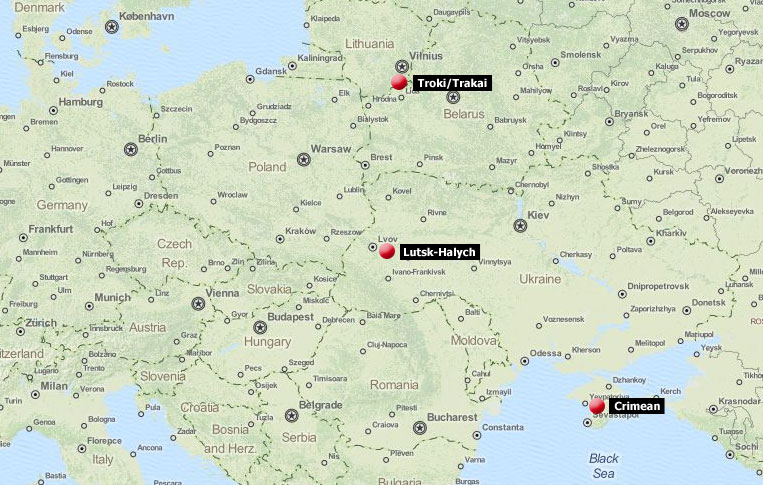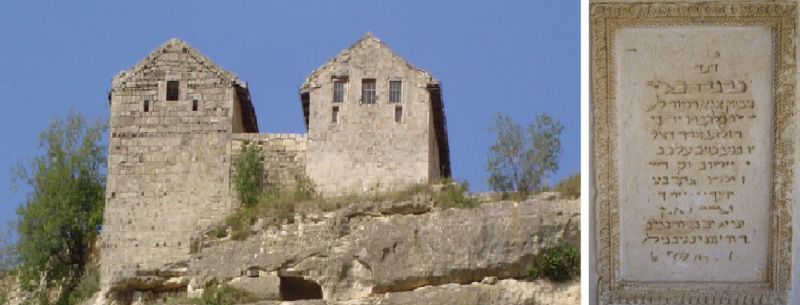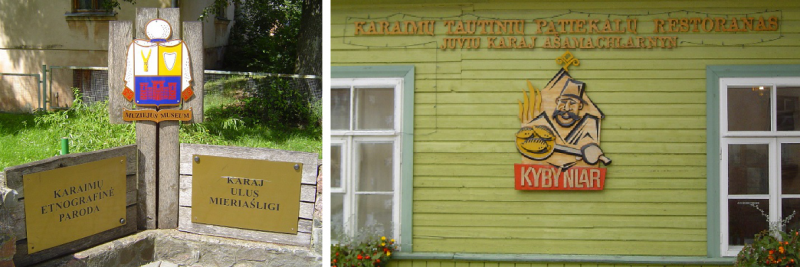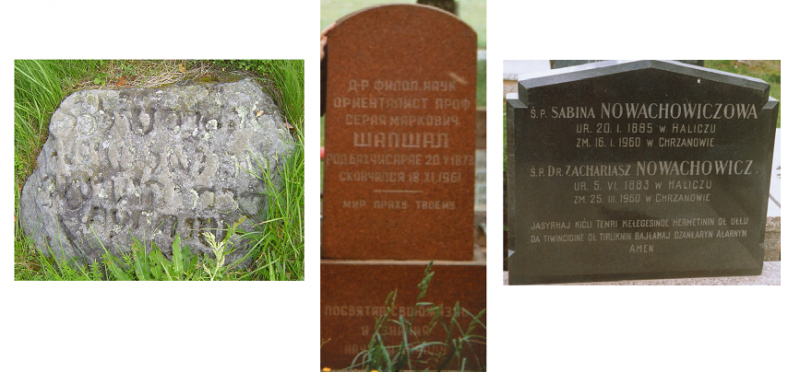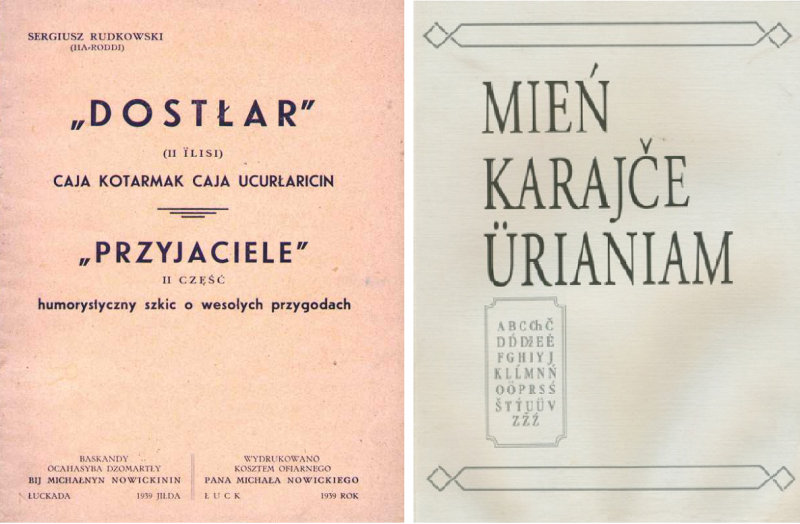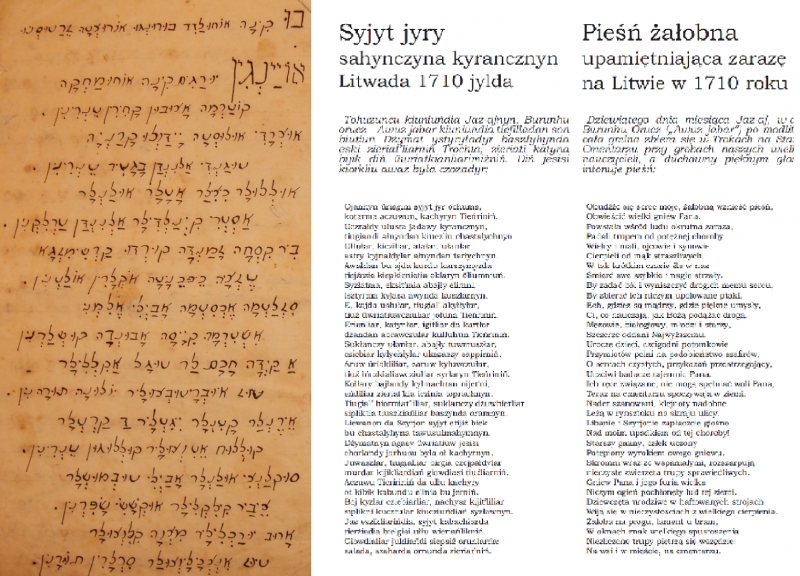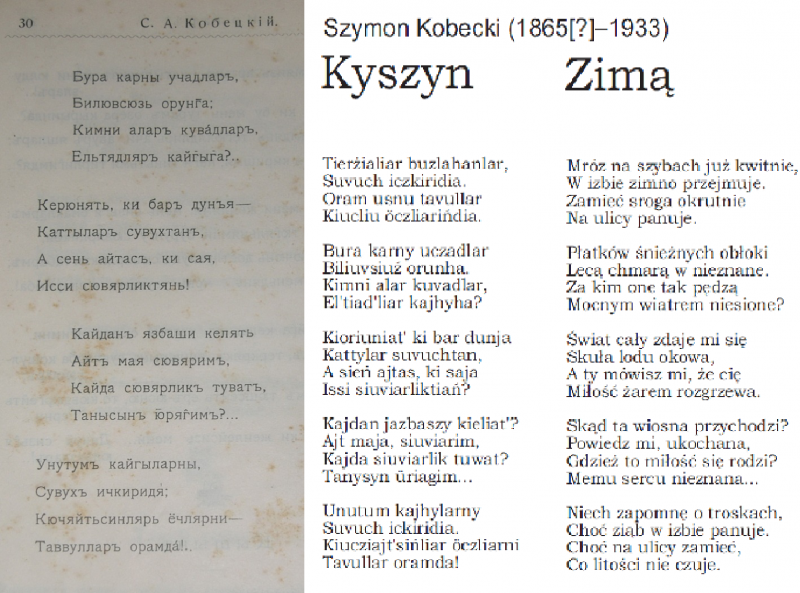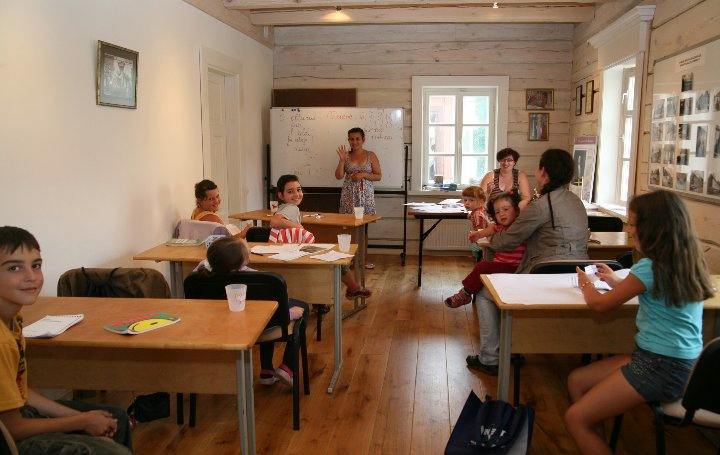Karaim is an endangered language spoken mainly in Ukraine, Lithuania and Poland. The Karaim language originates from the Crimean Peninsula, and is still used by some 120 persons in the two countries, as well as by some unverified number of speakers in the Ukrainian Crimea. Karaim belongs to the Kypchak branch of Turkic languages of the Altaic family. It has not developed a uniform standard, but functioned in the following dialectal varieties:
- Crimean – or eastern, spoken in the Crimean Peninsula, considered extinct by now (although Ethnologue 2009 quotes a number of 1000 Karaims living there); as well as two western Karaim varieties:
- Troki/Trakai – used within the Karaim communities in Lithuania and Poland, considered an endangered language – according to Ethnologue 2009 spoken by ca. 120 out of 300 ethnic Karaims, although a statistical research revealed in 2003 that out of 275 Karaims in Lithuanian and 126 in Poland, 39 could speak/understand and write/read Karaim (28 in Lithuania and 11 in Poland), while 86 could speak/understand it (69 in Lithuania and 17 in Poland) [1].
- Łuck-Halicz / Lutsk-Halych – in the past spoken in the two towns (nowadays in Ukraine), by now used by two last speakers; not transmitted to next generations.
The Karaim dialects differ significantly in vocabulary (=lexicon) and phonetics. The Karaims are the smallest officially recognized ethnic minority in Poland (no more than 300 persons) and Lithuania (ca. 275). Karaim belongs to the Kypchak branch of Turkic languages of the Altaic family. You can listen to one of the very last native speakers of Karaim in Poland, who recites the beginning of the “Invocation” from Adam Mickiewicz’s Pan Tadeusz in Karaim: here.
You can also try to solve the exercise concerning the dialects of Karaim on the Interactive Map.
Further information and resources:
- The Assosiation of Polish Karaims: www.karaimi.org
- Interesting films: http://www.karaimi.org/pl/media/wideo
- Read more on the Karaim revival in Ukrainian Galicia: http://www.octpib.info/Articles.aspx?id=15544

